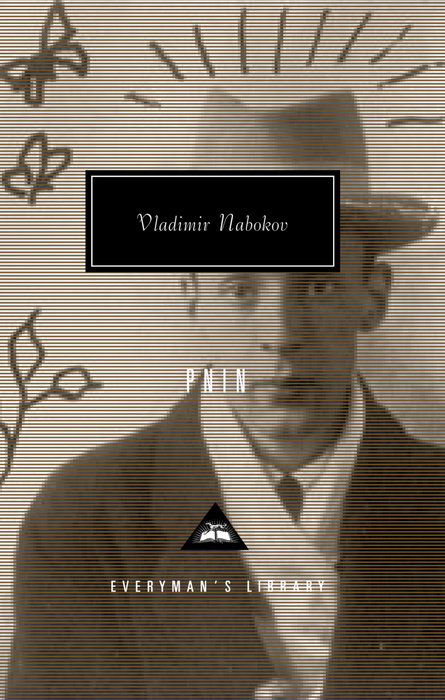What do you think?
Rate this book


184 pages, Hardcover
First published January 1, 1957


Now a secret must be imparted. Professor Pnin was on the wrong train. He was unaware of it, and so was the conductor, already threading his way through the train to Pnin’s coach. As a matter of fact, Pnin at the moment felt very well satisfied with himself.
‚ÄòYes,‚Ä� said Pnin with a sigh, ‚Äòintrigue is horrible, horrible. But, on the other side, honest work will always prove its advantage. You and I will give next year some splendid new courses which I have planned long ago. On Tyranny. On the Boot. On Nicholas the First. On all the precursors of modern atrocity. Hagen, when we speak of injustice, we forget Armenian massacres, tortures which Tibet invented, colonists in Africa‚Ä� The history of man is the history of pain!‚Ä�


Some people‚Äîand I am one of them‚Äîhate happy ends. We feel cheated. Harm is the norm. Doom should not jam. The avalanche stopping in its tracks a few feet above the cowering village behaves not only unnaturally but unethically.At the center of this book stands its titular character: Timofey Pnin, a haplessly disoriented Russian √©≥ææ±≤µ∞˘√© precariously employed on an American college campus in the 1950s. ("It was the world that was absent minded and it was Pnin whose business it was to set it straight.") Pnin struggles to maintain his dignity through a series of comic and sad misunderstandings, all the while falling victim both to subtle academic conspiracies and to the manipulations of a deliberately unreliable narrator. Initially an almost grotesquely comic figure, Pnin gradually grows in stature by contrast with those who laugh at him. Whether taking the wrong train to deliver a lecture in a language he has not mastered or throwing a faculty party during which he learns he is losing his job, the gently preposterous hero of this enchanting novel evokes our deepest protective instinct.
In order to exist rationally, Pnin had taught himself, during the last ten years, never to remember Mira Belochkin ‚Ä� not because, in itself, the evocation of a youthful love affair, banal and brief, threatened his peace of mind (alas, recollections of his marriage to Liza were imperious enough to crowd out any former romance), but because, if one were quite sincere with oneself, no conscience, and hence no consciousness, could be expected to subsist in a world where such things as Mira's death were possible.I mean, HOW GREAT IS THAT? "In order to exist rationally"???? I'm legit screaming right now by how awesome that is. "...no conscience, and hence no consciousness, could be expected to subsist in a world where such things as Mira's death were possible." OKAY IT'S REALLY TIME FOR US TO PACK IT UP. No one will do it like Nabokov did.
Why not leave their private sorrows to people? Is sorrow not, one asks, the only thing in the world people really possess?When he is fired at the end of the novel and refuses to work under our mystical narrator, I genuinely felt sad, and thought Pnin was in the right and deserved better. The entire novel is just such a feat because Nabokov perfectly captures the human condition. He knows what it's like to love and hope, suffer and despair. And he knows how to communicate it through words. It's just wonderful.

"Ideally bald, sun-tanned, and clean-shaven, he began rather impressively with that great brown dome of his, tortoise-shell glasses (masking an infantile absence of eyebrows), apish upper lip, thick neck, and strong-man torso in a tightish tweed coat, but ended, somewhat disappointingly, in a pair of spindly legs (now flanneled and crossed) and frail-looking, almost feminine feet."

"I do not know if it has ever been noted before that one of the main characteristics of life is discreteness. Unless a film of flesh envelops us, we die. Man exists only insofar as he is separated from his surroundings. The cranium is a space-traveller's helmet. Stay inside or you perish. Death is divestment, death is communion. It may be wonderful to mix with the landscape, but to do so is the end of the tender ego."
"Pnin and I had long since accepted the disturbing but seldom discussed fact that on any given college staff one could find not only a person who was uncommonly like one's dentist or the local postmaster, but also a person who had a twin within the same professional group. I know, indeed, of a case of triplets at a comparatively small college..."
"In the rememoration of old relationships, later impressions often tend to be dimmer than earlier ones."